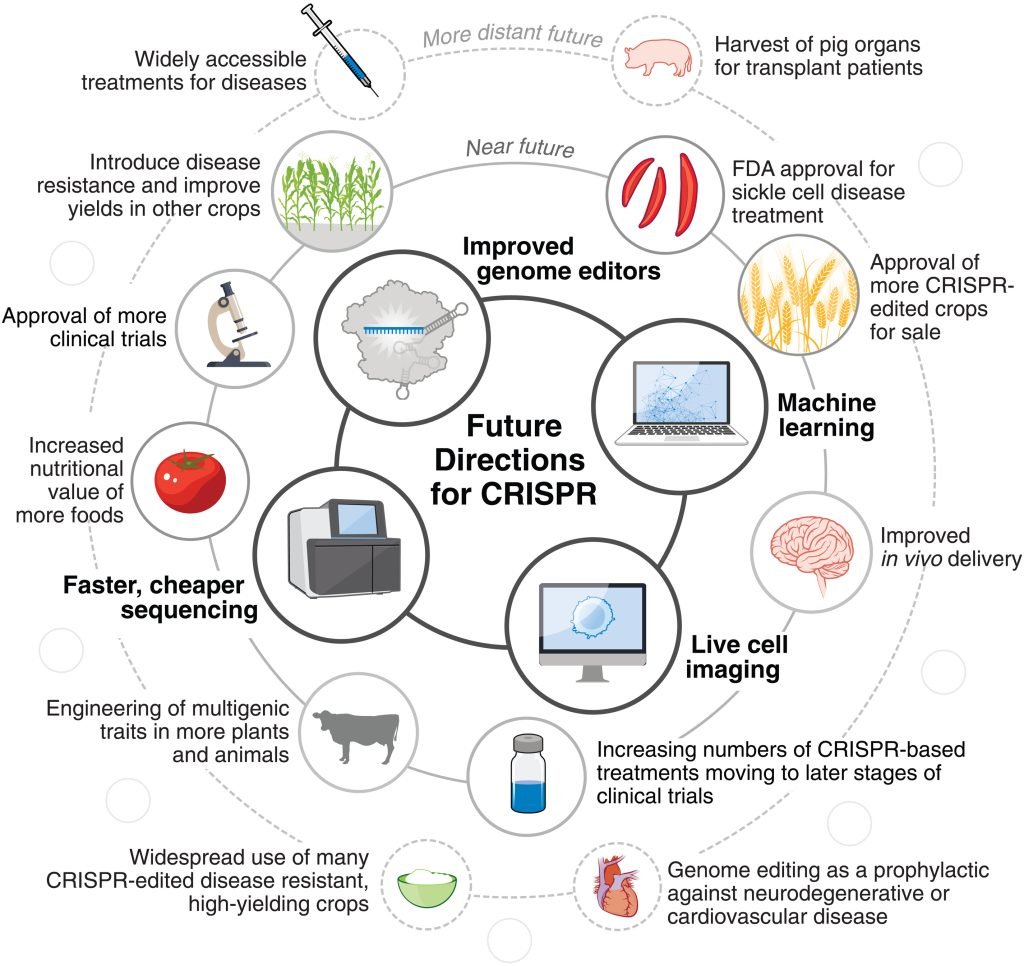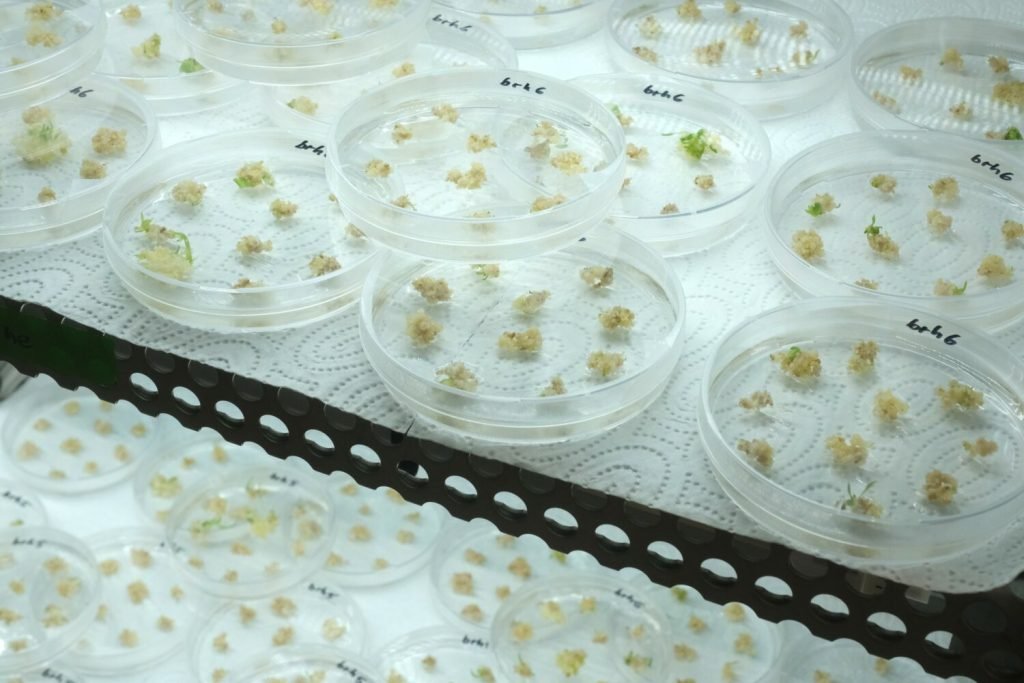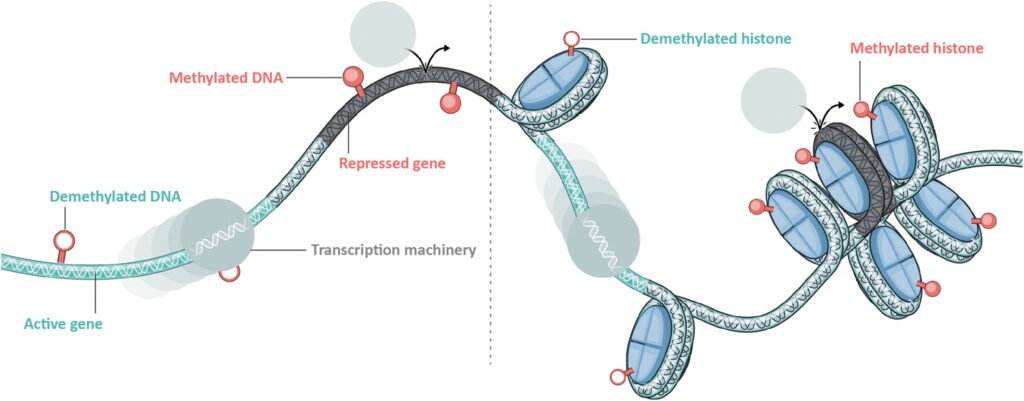Genome Editing Pioneer Urnov’s Journey in CRISPR Technology
Fyodor Urnov, a pioneering figure in the realm of genome editing, envisions a world where the benefits of CRISPR-based therapies are accessible to a vast population. His journey in the field began after obtaining his PhD in 1996 from Brown University. Following this, Urnov embarked on a postdoctoral fellowship at the National Institutes of Health (NIH) under the guidance of Alan Wolffe. In the year 2000, Urnov, along with Wolffe, joined Sangamo Therapeutics in California.

During his 16-year tenure at Sangamo, Urnov and his colleagues made history by successfully employing zinc-finger nucleases for modifying human DNA in 2005, coining the term “genome editing” in the process. This groundbreaking achievement laid the foundation for subsequent advancements in the field.
Urnov went on to lead collaborative teams focused on genome editing applications in various domains, such as crop genetics, model animal reverse genetics, and human somatic cell genetics. Additionally, his leadership played a pivotal role in steering a cross-functional team from basic discovery to the initial design of first-in-human clinical trials for conditions like sickle cell disease and beta-thalassemia. These trials are conducted in collaboration with prestigious institutions like UCSF Benioff Children’s Hospital and UCLA Broad Stem Cell Research Center.

In 2019, Fyodor Urnov took on the role of director at the Center for Translational Genomics at the Innovative Genomics Institute (IGI) and collaborated with Nobel laureate Jennifer Doudna. Simultaneously, he became a professor in the Departments of Genetics, Genomics, and Development at the University of California, Berkeley. Operating within collaborative teams at the IGI, Urnov focused on developing CRISPR-based therapeutics for various conditions, including sickle cell disease, genetic immune system disorders, radiation injury, cystic fibrosis, and neurological disorders.

In an interview with GEN Biotechnology, Urnov discussed his career, from his early days at Sangamo to his current venture, Tune Therapeutics, co-founded with Charles Gersbach and Akira Matsuno. He outlined his vision for “CRISPR cures on demand” and highlighted the challenges facing gene therapy. Despite challenges, gene therapy has shown remarkable curative outcomes in severe conditions, such as severe combined immune deficiency and sickle cell disease.
Urnov emphasized the potential of gene therapy in diverse areas, including blood and liver disorders, with major biotech and pharmaceutical companies actively engaged in harnessing the power of CRISPR. However, he drew attention to the challenges faced by rare disease patients, citing limited commercial viability for treatments due to small patient populations. He stressed the importance of addressing this issue and ensuring accessibility to CRISPR-based therapies.

Recognizing the crucial role of academic and nonprofit institutions in gene therapy development, Urnov highlighted challenges in making these therapies accessible. Key issues include affordable manufacturing, cost-effective clinical trials, and a streamlined regulatory framework. Urnov emphasized the critical nature of addressing these challenges in the next three to five years.

Tune Therapeutics, realizing a dream that began over two decades ago, stands out for its multidisciplinary team, impressive data and technology, and commitment to advancing therapeutics from laboratory studies to clinical trials. The company’s focus on translating discoveries into real-world clinical applications reflects its dedication to making a significant impact on the future of healthcare.
Gene therapy has proven highly effective, achieving curative outcomes in various medical conditions. Notably, it has successfully cured severe combined immune deficiency, a previously fatal condition in affected children. Ongoing clinical trials for sickle cell disease demonstrate substantial reductions in pain episodes and transfusion needs, showcasing the broader potential of gene therapy in addressing blood and liver disorders. Major biotech and pharmaceutical companies are actively leveraging CRISPR technology to advance these therapeutic possibilities.
Despite these advancements, Fyodor Urnov acknowledges challenges faced by individuals with rare diseases. The limited commercial viability for treating rare conditions due to small patient populations often hinders the development and approval of economically feasible treatments. Urnov emphasizes the crucial role of academic and nonprofit institutions, possessing the expertise to design and administer CRISPR-based treatments. However, making these therapies accessible remains a challenge, requiring solutions such as affordable manufacturing, cost-effective clinical trials, and a streamlined regulatory framework within the next three to five years.
As the interview progresses, Urnov discusses his role as the co-founder of Tune Therapeutics, a biotech company specializing in epigenome editing. This cutting-edge approach, focusing on modifying chemical marks without altering DNA sequences, allows for precise control over gene expression. Epigenome editing, as demonstrated by Tune Therapeutics, goes beyond binary on-off switches, offering a range of adjustments comparable to fine-tuning the volume on a soundboard. The company stands out for its multidisciplinary team, impressive data and technology, and commitment to translating discoveries into real-world clinical applications, addressing a broad spectrum of health challenges.

READ MORE ARTICLES The Promise of Xenotransplantation
Tune Therapeutics represents the realization of a dream that began over two decades ago, influenced by Urnov’s mentor, Alan Wolffe. Wolffe’s vision for engineering gene control through chromatin and epigenomic principles profoundly impacted Urnov’s career trajectory. While their early focus was on zinc-finger nucleases, their direction shifted towards addressing genetic mutations associated with conditions like bubble boy disease, laying the foundation for significant progress in gene editing.
Conclusion
Fyodor Urnov’s journey in genome editing mirrors the remarkable strides in the field, especially with the advent of CRISPR technology. This innovation has elevated gene therapy to unprecedented levels, providing hope to individuals with diverse genetic diseases. Despite the challenges posed by rare diseases, Urnov remains committed to democratizing access to CRISPR-based therapies. His venture, Tune Therapeutics, epitomizes the ambition to utilize epigenome editing to fine-tune gene expression, offering a transformative impact on a wide range of health conditions. With a dedicated team, groundbreaking data, and a clear translational focus, Tune Therapeutics is poised to revolutionize the future of healthcare

3 Comments